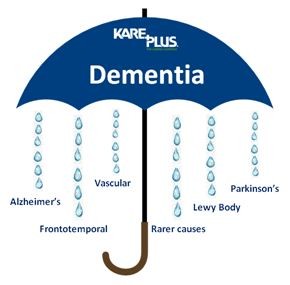Dementia: Four questions about Frontotemporal Dementia
Thursday, January 28th, 2016 | Raising Awareness
 Dementia comes in many forms: Alzheimer’s, Lewy Bodies, Parkinson’s and Vascular Dementia to name just a few. The number of dementia sufferers is increasing rapidly and by 2025 figures are expected to hit 1,000,000. With such high statistics, we believe it is vital to help spread awareness of the disease, how it affects sufferers and how it affects family, friends and carers.
Dementia comes in many forms: Alzheimer’s, Lewy Bodies, Parkinson’s and Vascular Dementia to name just a few. The number of dementia sufferers is increasing rapidly and by 2025 figures are expected to hit 1,000,000. With such high statistics, we believe it is vital to help spread awareness of the disease, how it affects sufferers and how it affects family, friends and carers.
Strain by strain, we are breaking down the ins-and-outs of various types of dementia, and in this issue we are looking closer at Frontotemporal Dementia.
Frontotemporal Dementia is one of the least common forms of the disease; affecting just 16,000 people in the UK. It predominantly affects the front and side areas of the brain (medically known as the frontal and temporal lobes), which are responsible for planning, organising and language – as well as playing part in controlling behaviour. Compared to other strains of dementia, Frontotemporal Dementia regularly develops at the relatively young age of 45 – and even younger in some cases.
1) What causes Frontotemporal Dementia? Frontotemporal Dementia has some of the strongest genetic-related evidence of any form of dementia. Around 40% of all sufferers have history of the illness within their family. However, it is also related to medical and lifestyle factors.
It is caused by a build up of abnormal proteins in the brain, which clump together and become toxic over time. Eventually, these toxic clumps begin to kill brain cells, causing the affected areas of the brain to shrink.
Children and siblings of sufferers have a 50% chance of inheriting Frontotemporal Dementia, so should be referred to a specialist genetics service.
2) What are the symptoms of Frontotemporal Dementia? As with many strains of dementia, Frontotemporal Dementia doesn’t come on suddenly; its symptoms build up slowly over time and vary depending on what area of the brain it is affecting.
In the initial stages, Frontotemporal Dementia causes problems with language and behaviour. This can be anything from suddenly becoming outgoing and enthusiastic, to losing interest and lacking initiative. For example, these symptoms can include:
- Inappropriate public behaviour
- Change in eating habits
- Neglecting personal hygiene
- Reduced vocabulary
- Incorrect use of words
- Reduced speech and conversation
- Repeating other people’s comments
As the disease progresses, it can begin to affect all activities linked to the brain – such as thinking; meaning they often need to be told what to do and have difficulty planning, and physical movement. Similar to Parkinson’s disease, sufferers of Frontotemporal Dementia may become rigid and stop initiating movement, or even lose control of their bladder. In some cases, Frontotemporal Dementia can develop alongside other neurological problems such as Motor Neurone Disease and Progressive Supranuclear Palsy, which can lead to further physical symptoms.
3) How is Frontotemporal Dementia treated? As with most strains of dementia, the sufferer’s future needs will be assessed and a care plan will be drawn up to help them live as normal a life as possible. This may be through providing carers, making changes around the home, therapy classes or even financial assistance.
On top of this, there are also various medications that can help control and relieve some of the symptoms. These include antidepressants and antipsychotics, but currently there is no medication to combat Frontotemporal Dementia itself.
4) How can you help a Frontotemporal Dementia sufferer? Helping a dementia sufferer can be challenging at times – no matter what strain they may be suffering from.
Offering support, remaining sensitive and trying to avoid criticism can massively boost the morale of a sufferer who may be beginning to feel useless as they lose more and more responsibility. For example, memory aids, such as pictures on cupboard doors of what is inside, can help them maintain freedom and responsibility. As the illness develops, such tasks can become more difficult for them to calculate mentally and perform physically – putting more strain on you, as the carer.
To cope with such pressure, maintaining your hobbies, health and nutrition is vital to keep you physically and mentally strong. Without this, you may struggle to cope and get overwhelmed by it all.
Not only can the individual be difficult to manage both physically and mentally though, there can be various legal and financial stresses involved. The NHS Choices website has lots of advice available to help you overcome these challenges.
To find out more about the various strains of dementia and how you can help prevent them and care for those suffering from them, you can read the rest of our dementia breakdowns here.
Sources:
http://www.nhs.uk/Conditions/frontotemporal-dementia/Pages/Introduction.aspx
https://www.alzheimers.org.uk/site/scripts/documents_info.php?documentID=167














